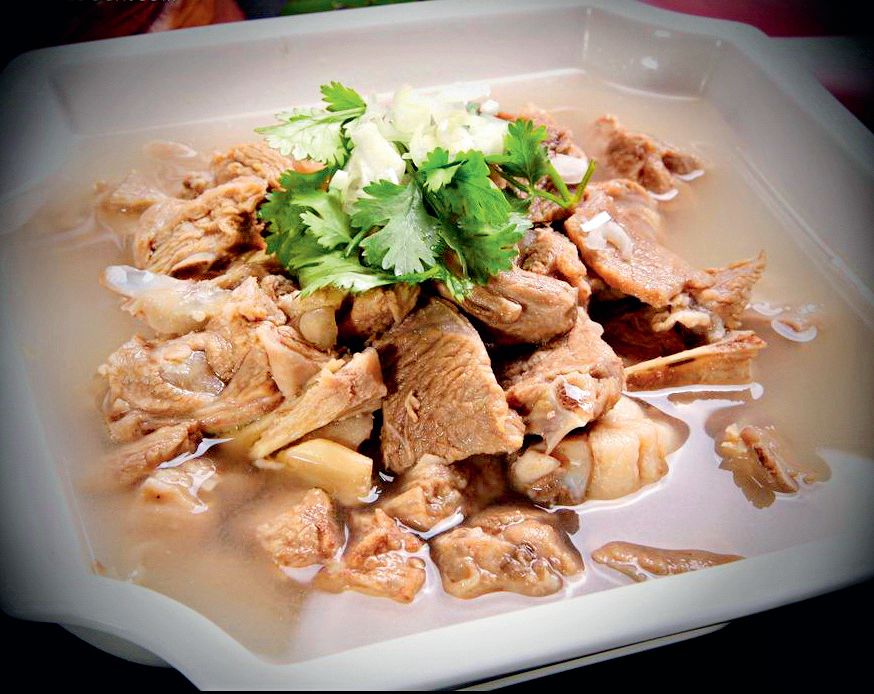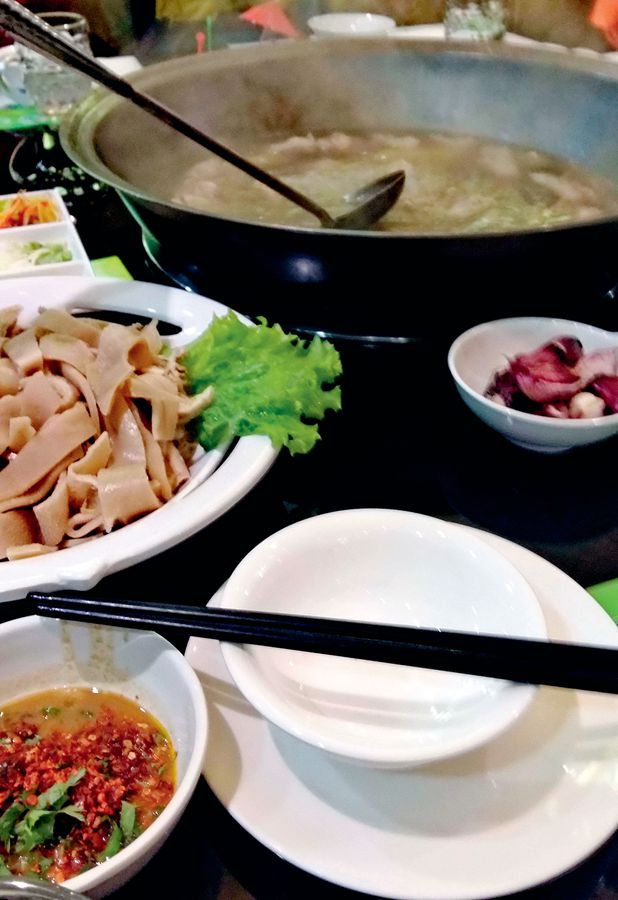THE Beginning of Winter usually falls on November 7 or 8. In northern China, the temperature begins to drop below zero and water freezes; while in southern China, there is still a period of unseasonably warm called Indian Summer.

Stewed Mutton.
This solar term is so important that since the Zhou Dynasty (1046-256 BC), the emperor and his civil and military officials would hold a ceremony on that day to offer sacrifices to Heaven, celestial beings, and ancestors, praying for a good harvest and a well-off life for his people.
As winter starts, the weather begins to get colder, trees and grass start withering, and insects disappear to hibernate. In traditional Chinese medicine, it is suggested that one should take some dietetic therapy to build up strength and shore up energy during this season which helps to defend against the cold and prevent illness.
One principle of the winter diet is to avoid eating cold foods, eating more fresh vegetables rich in vitamins, including lotus root, Chinese cabbage, radish, mushroom, black fungus.

Within its vast territory, China has multiple delicacies for the winter, varying from the north to the south. In southern China, it is customary to eat chicken, duck, fish, and pork on the day of Beginning of Winter, when restaurants are usually filled with customers. Most families prefer the Sesame Oil Chicken and Decoction of Four Herbs. Originating from the Tang Dynasty (618-907), the Decoction of Four Herbs is cooked from four types of traditional Chinese medicinal materials, when stewed with chicken it becomes a classic medicated diet to nourish the body. While in the north of China, such as Beijing, Tianjin, and Hebei Province, besides instant-boiled mutton, roast duck and other meat served on table, dumplings are very popular among local people. Besides Chinese cabbages and leeks, the soft and sweet pumpkin left from autumn to winter is also an excellent choice for stuffing. Wash the pumpkin first and shred into strips, add minced pork, thick sauce made from soy beans, sesame oil, salt, chopped scallion, and ginger, and then stir the stuffing evenly. According to legend, eating dumplings prevents frostbite on ears during winter.
Stewed mutton is especially recommended to regain energy in the cold season. Prepare 500g mutton, 15g cooking wine, 10g salt, 50g oil, 5g chopped scallion and ginger respectively, and a small package of seasonings including 2g aniseed, 1g Chinese red pepper, and 2 pieces of cinnamon. Wash the mutton and cut into four-centimeter cubic blocks, pour oil into the pan and stir-fry with chopped scallion and ginger till the fragrance comes out, put mutton in and fry till the color changes, add in cooking wine, water, salt, and the small package of seasonings. Subject to high temperature till the water begins boiling, switch to low heat, and then stew for one and a half hour.
TONG CHANGYOU is a Beijing Cuisine master and member of China Cuisine Association and Beijing Cuisine Association.

